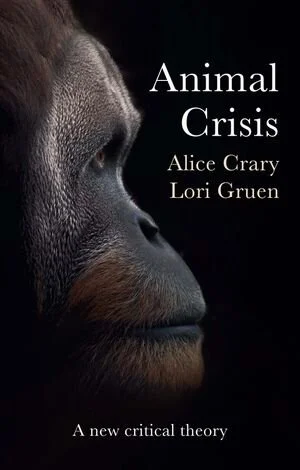Animal Crisis: A New Critical Theory
by Alice Crary and Lori Gruen
Human animal relations are in a crisis of catastrophic proportions. Today it is undeniable that the human use and destruction of animals and their habitats, including practices that result in mass animal deaths, have existential implications not only for nonhuman animals but also for human beings and the planet. This book is written for those who are committed to bringing the crisis clearly into view, with an eye toward envisioning new forms of life that will allow us to build better, life-sustaining relations and act to create a less violent, more caring future.
The academic discipline of animal ethics, which is now roughly 50 years old, has been a key site for discussing ethical interventions into the crisis. We acknowledge the role standard formulations of animal ethics have played in heightening awareness of the predicaments that nonhuman animals confront. These standard views have been informative both in academic contexts and in the larger animal protection movement. But our discussion here has a significant critical dimension.
One prominent strand of animal ethics is preoccupied with animal suffering - suffering that occurs in slaughterhouses, laboratories, and other sites of animal confinement, as well as the suffering that animals experience in the wild. Another prominent strand counters this focus on eliminating suffering, urging that we instead emphasize respect for the rights and dignity of animals. While these strands of animal ethics certainly contribute to increased recognition of nonhuman animals' plights, much of this work obscures, and sometimes even promotes, elements of the crisis we want to resist. The following pages illuminate various ways in which conceptual tools employed within these ethical projects are ill-suited for achieving the goals of genuine liberation.
